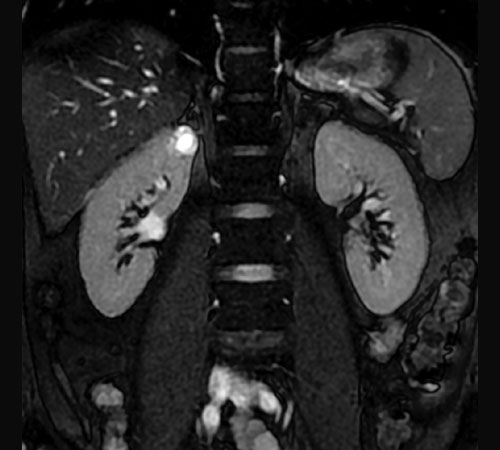
Posted on: Wednesday, 17 November 2010, 08:02 CST
Local charity underwrites important kidney research
JUPITER, Fla., Nov. 17, 2010 /PRNewswire-USNewswire/ — The Halpin Foundation and the American Society of Nephrology (ASN) are proud to highlight the research advances in membranous nephropathy made possible by the Halpin Foundation-ASN Research Grant, created to help young faculty develop independent research careers. this award provides recipients transition funding toward successful application for an NIH RO1 grant.
The Halpin Foundation has dedicated itself to the study of membranous nephropathy since 1989, after the Halpins’ 14-year-old son was diagnosed with this rare disorder. to advance research of the disorder and its symptoms, including loss of protein in the urine and a progressive decline in renal function, the Halpin Foundation partnered with the American Society of Nephrology (ASN) to promote research relevant to membranous nephropathy in 2004.
Elena Torban, PhD (McGill University Faculty of Medicine), the 2008-2009 recipient of The Halpin Foundation-ASN Research Grant, recently explained, “The generous financial two-year support provided by the Halpin Foundation has enabled us to conduct a successful experimental program demonstrating for the first time that podocyte architecture is indeed regulated by the PCP pathway. We also showed that the podocyte-specific protein, nephrin, is linked to proteins of the PCP network. this finding establishes a mechanism whereby the PCP pathway regulates nephrin-dependent organization of foot processes.”
The 2009-2010 recipient, Laurence H. Beck, Jr., MD, PhD, wrote of the grant, “The funding provided by the Halpin Foundation has been instrumental in allowing my research to take root and grow. The research award has permitted me to spend the majority of these two years in the laboratory, performing experiments and helping to train young scientists and fellows to conduct similar lines of inquiry. The fruits of this research should soon allow me to successfully apply for individual federal funding. Their ongoing interactions with leaders in this field on a national and international level have been enormously helpful for me in terms of forming productive collaborations to move this research forward. I will always be grateful for this support at such a critical time in the career of a young physician-scientist.”
Dr. Beck and several colleagues will also participate in a Clinical Nephrology Conference (CNC) during Renal Week entitled, “Membranous Nephropathy” on Friday, November 19 from 10:30 am – 12:30 pm in Korbel 2A/3A of the Colorado Convention Center in Denver, CO. The session, “The Human Membranous Antibody: Mechanism and Monitoring” is a way to highlight research advances and stimulate investigations regarding membranous nephropathy.
“We are grateful to the Halpin Foundation for helping us fund new investigators interested in studying this disease to answer the many unanswered questions surrounding membranous nephropathy and nephrotic syndrome,” said ASN’s President, Sharon Anderson, MD, FASN.
About the ASN
Founded in 1966, the American Society of Nephrology (ASN) is the world’s largest professional society devoted to the study of kidney disease. Comprised of 11,000 physicians and scientists, ASN continues to promote expert patient care, to advance medical research, and to educate the renal community. ASN also informs policymakers about issues of importance to kidney doctors and their patients. ASN funds research, and through its world-renowned meetings and first-class publications, disseminates information and educational tools that empower physicians. asn-online.org
About Renal Week
ASN Renal Week 2010, the largest nephrology meeting of its kind, will provide a forum for 13,000 professionals to discuss the latest findings in renal research and engage in educational sessions related to advances in the care of patients with kidney and related disorders. Renal Week 2010 will take place November 16 – November 21 at the Colorado Convention Center in Denver, CO. asn-online.org/education_and_meetings/renal_week
About the Halpin Foundation
The Halpin Foundation is a non-profit medical research organization that seeks to aid the medical community in understanding and overcoming genetic medical conditions. The foundation’s grants are prioritized into two targeted goal areas: kidney disease research and autoimmune disease research. this year the Halpin Foundation partnered with the American Society of Nephrology (ASN) and awarded Dr. Laurence Beck. Jr., the lead researcher in this study, from the Boston University School of Medicine (BUSM), a grant for the continuation of his work on the PLA2R antigen. For more information about the Halpin Foundation, please visit halpin.org.
Other grants this year from the Halpin Foundation included:
In Membranous Nephropathy to:
Ariela Benigni, Paolo Cravedi, and Giuseppe Remuzzi summed up an important study they’ve undertaken with support from the Halpin Foundation, saying, “Understanding how in patients with this syndrome elevated levels of IgG4 may cause the disease represents a unique opportunity to assess the mechanisms – and develop treatments targeted – in most common cases of membranous nephropathy not related to high levels of IgG4. on this basis, we designed a study to analyze the characteristics of immunoglobulins – especially IgG4 – in one of the very rare patients with membranous nephropathy associated with hyper-IgG4 syndrome (so far, less than ten patients have been reported worldwide). as often happens with rare diseases, we expect that the study of a very special case may provide useful information on the causes of membranous nephropathy even in the more frequent cases of patients with normal levels of IgG4.”
In Translational Medical Research to:
Sujit Basu, MD, PhD, an associate professor of Pathology and a member of the Experimental Therapeutics Program at the OSUCCC-James, and Chandrani Sarkar, PhD, research assistant professor of Pathology, have also received a two-year grant from the Halpin Foundation to study the role of neurotransmitter dopamine in multiple myeloma. Basu is principal investigator, and Sarkar is joint-principal investigator. “The Foundation president, mrs. Joan Halpin, and other members of the Foundation became interested in our work after reading about it in high-impact journals. They think our work may answer some puzzles in cancer biology.”
For more information about the Halpin Foundation, please visit halpin.org.
SOURCE The Halpin Foundation
More News in this Category